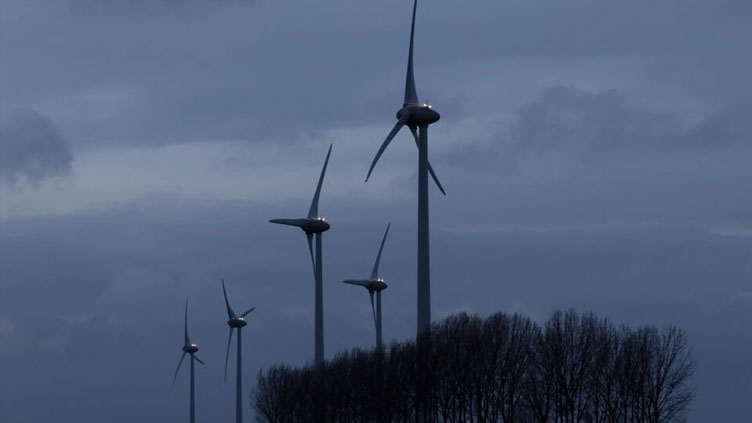France pushes forward with plan to speed up renewables

World
Macron has set a target of building 50 offshore plants by 2050
PARIS (AFP) – French MPs on Tuesday moved ahead with a law to accelerate the deployment of renewable energy, as the country’s nuclear plants suffer a maintenance crisis and Russia’s invasion of Ukraine drives up energy costs.
Having secured rare support from the left, President Emmanuel Macron’s minority administration is now a step closer to lowering hurdles to building new solar and wind plants -- including massive offshore wind farms.
Macron has set a target of building 50 offshore plants by 2050, up from one today, to generate 40 gigawatts of electricity.
And he wants to multiply solar capacity by 10, to top 100 gigawatts.
Taking part in the bill’s first reading with paper slips after a technical error affected the electronic voting system, 286 MPs backed the draft law with 238 against.
Agnes Pannier-Runacher, minister for energy transition in Macron’s government, told AFP she welcomed the "responsible positions" taken by the Socialists and a small independent party who supported the move.
Just 19.3 percent of France’s energy consumption is sourced from renewables, short of the 23-percent objective Macron’s government set in 2020 and only slightly ahead of coal- and gas-intensive neighbour Germany.
Russia’s invasion of Ukraine at the same time as the nuclear power crisis has upped the pressure to boost alternative sources of energy.
Scheduled maintenance and corrosion problems have left 14 of France’s 56 reactors still offline.
Tuesday’s draft law will now be subject to compromise talks between MPs and senators -- with the upper chamber fiercely defensive of mayors’ rights to have a say in local projects.
In an initial compromise with the Senate, the government has promised to allow mayors to define "acceleration zones" where renewables can be built more easily.
But the left fears that too many concessions could let local officials veto projects.
"No one will be able to jam up the system," a source close to Pannier-Runacher told AFP ahead of the vote.
The draft law includes provisions allowing projects to be forced through based on "pressing needs of major public interest".
With no majority in parliament, the government wooed the Greens and Socialists in advance of Tuesday’s vote to move the bill closer to becoming law.
They secured an abstention from the ecologists and reluctant backing from the centre-left to get over the line.
"Sometimes you have to cooperate in the name of the public interest and the environmental crisis," Socialist MP Dominique Potier said, hailing "major advances" from his party’s amendments.
Meanwhile Greens chief Marine Tondelier said "this isn’t a definitive abstention" but "we’re expecting better" from the final bill.
Their partners in the broad left-wing NUPES coalition against Macron, the Communists and hard-left France Unbowed (LFI) party, opposed the new law for its market focus.
On parliament’s right, the conservative Republicans and far-right National Rally (RN) both oppose easing the construction of renewables.
Wind turbines "destroy our landscapes" and "set your eyes and your brain spinning", RN lawmaker Pierre Meurin said ahead of the vote.

